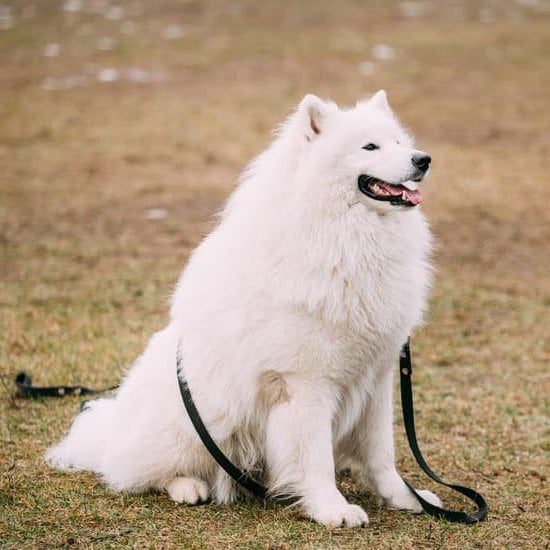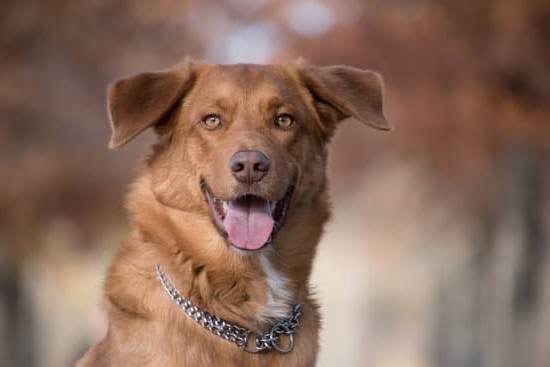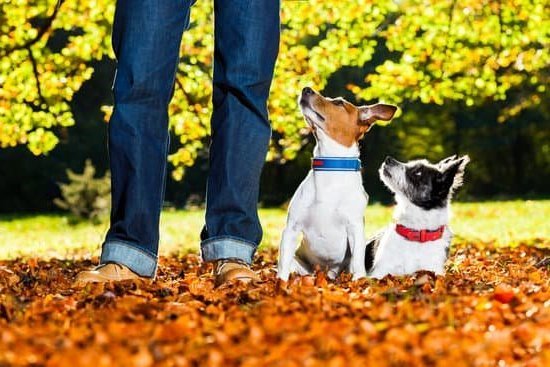Have you ever wondered why do potty trained dogs pee in the house? Understanding the behavior of potty trained dogs is essential to addressing this common issue.
From establishing a routine for potty breaks to recognizing medical issues and environmental factors, there are various reasons why accidents may occur despite a dog being potty trained. In this article, we will explore the different factors that contribute to a dog’s bathroom habits and provide strategies for managing accidents in the house.
One of the key aspects of understanding why potty trained dogs pee in the house is recognizing the importance of establishing a routine for potty breaks. Dogs thrive on predictability and structure, so having a consistent schedule for bathroom breaks can significantly reduce the likelihood of accidents inside the house. By understanding the needs of your dog and being proactive in providing opportunities for them to relieve themselves, you can minimize the occurrence of indoor accidents.
In addition to routine, it’s important to consider common medical issues that can cause accidents inside the house. From urinary tract infections to kidney disease, there are various health conditions that can impact a dog’s ability to control their bladder. By being aware of these potential medical issues, pet owners can seek appropriate veterinary care and address any underlying health concerns that may be contributing to accidents in the house.
The Importance of Establishing a Routine for Potty Breaks
Establishing a routine for potty breaks is crucial in maintaining a potty trained dog’s consistent bathroom habits. By following a regular schedule, pet owners can effectively prevent accidents inside the house and reinforce their dogs’ potty training. Here are some important reasons why establishing a routine for potty breaks is essential:
- Consistency: Dogs thrive on consistency and establishing a routine for potty breaks helps them know when to expect their outdoor bathroom time.
- Prevention of accidents: A consistent potty break schedule reduces the likelihood of accidents inside the house, as it allows dogs to relieve themselves at appropriate times.
- Behavioral reinforcement: Routine potty breaks help reinforce the desired behavior of going to the bathroom outside, making it easier for dogs to understand and follow through with their training.
It is important to note that the frequency of potty breaks may vary depending on factors such as age, breed, and overall health. Puppies, for example, may need more frequent potty breaks compared to adult dogs due to their smaller bladder capacity and higher energy levels.
In addition to establishing a routine for potty breaks, it is also essential to pay attention to cues from your dog signaling that they need to go outside. Signs such as restlessness, circling or sniffing around, whining, or going to the door should be recognized and promptly addressed by taking your dog out for a potty break.
By combining a consistent schedule with attentiveness to your dog’s signals, you can effectively prevent accidents in the house and maintain successful potty training.
Common Medical Issues That Cause Accidents Inside the House
Urinary Tract Infections
One common medical issue that can lead to potty trained dogs peeing in the house is a urinary tract infection (UTI). UTIs are painful and can cause a dog to have accidents inside the house as they struggle to control their bladder.
The presence of blood in the urine or frequent attempts to urinate with only small amounts coming out are signs of a possible UTI. It is important to take your dog to the vet if you suspect a UTI so that they can receive proper treatment.
Diabetes
Another medical condition that can lead to accidents inside the house is diabetes. Dogs with diabetes may drink more water and therefore need to urinate more frequently. Additionally, if their diabetes is not well-controlled, they may have accidents inside the house due to an inability to hold their bladder. Monitoring your dog’s water intake and being aware of any changes in their bathroom habits can help in identifying potential issues related to diabetes.
Incontinence
Incontinence, especially in senior dogs, can also be a reason for accidents inside the house. As dogs age, they may experience weakened bladder muscles or other urinary issues that make it difficult for them to hold their urine. It’s important for pet owners to understand that these accidents are not deliberate and should seek veterinary guidance on managing incontinence in their pets.
Stress and Anxiety
It is not uncommon for potty trained dogs to have accidents in the house when they are under stress or experiencing anxiety. Just like humans, dogs can become overwhelmed by various factors, leading to changes in their bathroom behavior. Understanding how stress and anxiety affect a dog’s bathroom habits can help pet owners address the issue effectively.
Some common signs of stress and anxiety in dogs include excessive barking, destructive behavior, restlessness, and yes, even indoor accidents. Dogs may feel stressed due to unfamiliar environments, loud noises, separation from their owners, or changes in routine. These stressors can lead to bladder control issues, causing a potty trained dog to have accidents inside the house.
To help alleviate stress and anxiety in dogs, it is important for pet owners to create a calm and secure environment for their pets. This can be achieved through regular exercise, mental stimulation, providing a safe space for the dog to retreat to when feeling anxious, or even using calming aids such as pheromone diffusers or calming music.
Pet owners should also consider consulting with a professional dog trainer or behaviorist if their dog’s stress and anxiety levels are significantly impacting their bathroom habits. With patience and proper guidance, it is possible to help reduce a dog’s stress and anxiety, ultimately minimizing accidents inside the house.
- Establishing a consistent daily routine can help reduce a dog’s feelings of uncertainty and unease.
- Providing mental stimulation through interactive toys and activities can help alleviate boredom and reduce stress in dogs.
- Consulting with a veterinarian or animal behaviorist can provide valuable insight into addressing stress-related bathroom issues in potty trained dogs.
Environmental Factors That Can Lead to Accidents in the House
Weather Changes
Sudden weather changes can affect a potty trained dog’s bathroom habits. For example, extreme cold or heavy rain may discourage a dog from wanting to go outside to relieve itself. Additionally, some dogs are sensitive to certain weather conditions and may become anxious, leading to accidents inside the house. It’s important for dog owners to be aware of how their pet reacts to different weather patterns and make accommodations as needed.
Noise and Distractions
Loud noises from construction, fireworks, or even household appliances can startle a dog and cause it to have an accident indoors. Similarly, if there are frequent distractions such as children running around or guests visiting, the dog might become too excited or stressed to remember its bathroom training. Creating a quiet and peaceful potty area away from noise and distractions can help minimize accidents in the house.
Poor Indoor Potty Area Management
In some cases, accidents occur in the house due to inadequate management of the indoor potty area. If the designated spot for the dog’s bathroom needs is not cleaned regularly or is too far from where the dog spends most of its time, accidents are more likely to happen.
It’s important for dog owners to ensure that the indoor potty area is kept clean and easily accessible for their pets. Additionally, using positive reinforcement when the dog uses this space can help reinforce good bathroom behavior.
The Role of Age in Accidents
As dogs age, they may experience a decline in their ability to control their bladder and bowel movements. This is particularly true for senior dogs, who may develop medical conditions such as urinary incontinence or cognitive dysfunction that can lead to accidents inside the house. According to veterinary professionals, it’s important for pet owners to be aware of these age-related changes and to provide the necessary support and accommodations for their aging furry companions.
Puppies, on the other hand, are still in the process of learning appropriate bathroom habits. They have smaller bladders and less muscle control than adult dogs, which makes them more prone to having accidents indoors. It’s crucial for puppy owners to understand that accidents are a normal part of the potty training process and require patience and consistency in training.
Senior dogs also require special attention when it comes to managing accidents in the house. In addition to age-related health issues that may contribute to accidents, older dogs may also experience cognitive changes that impact their awareness of when they need to eliminate. As such, it’s important for pet owners to monitor their senior dogs closely and make adjustments as needed to prevent discomfort or distress related to indoor accidents.
| Age-Related Factors | Impact on Accidents |
|---|---|
| Senior Dogs | Potential decline in bladder/bowel control due to age-related health issues or cognitive changes |
| Puppies | Less bladder control and muscle development than adult dogs, requiring consistent potty training |
The Impact of Changes in the Household on a Dog’s Bathroom Behavior
Dogs thrive on routine, and any changes in the household can have a significant impact on their bathroom behavior. Dogs are creatures of habit, so even minor disruptions to their daily routine can lead to accidents inside the house. Some examples of household changes that can affect a dog’s bathroom behavior include moving to a new home, changes in work schedules, the addition of a new family member (human or animal), or renovations in the house.
One major change that can greatly impact a dog’s bathroom behavior is moving to a new home. Dogs are territorial animals, and moving to a new environment can cause them stress and confusion. This can result in accidents as they try to adjust to their new surroundings. It’s important for dog owners to be patient and understanding during this transition period, and provide extra potty breaks and positive reinforcement to help their dog adapt to the new home.
Changes in work schedules can also disrupt a dog’s bathroom routine. If the owner is suddenly away from home for longer hours or at different times of the day, it can lead to accidents if the dog is unable to hold it in until someone returns. In such cases, hiring a dog walker or enlisting the help of a friend or family member to let the dog out for potty breaks can be beneficial.
The addition of a new family member, whether it be another pet or a baby, can also affect a dog’s bathroom behavior. The presence of a new family member may cause stress or anxiety for the dog, leading to accidents inside the house. It’s important for pet owners to give their dogs time to adjust to the new addition and provide reassurance and extra attention during this period of change.
| Household Change | Effect on Dog’s Bathroom Behavior |
|---|---|
| Moving to New Home | Stress and confusion leading to accidents as they adjust |
| Changes in Work Schedules | Disruption in potty routine due to longer hours alone |
| Addition of New Family Member | Stress or anxiety causing accidents due to adjustment period |
Reinforcing Potty Training
Once you have successfully potty trained your dog, it is important to reinforce this training to ensure continued success. One of the key techniques for reinforcing potty training is positive reinforcement. When your dog eliminates outside, be sure to praise and reward them with treats or verbal praise. This positive association will encourage them to continue going outside to do their business.
Consistency is another crucial aspect of reinforcing potty training. Stick to a regular schedule for feeding and potty breaks, as this will help your dog understand when they can expect to go outside. Additionally, be patient with your dog and understand that accidents may happen from time to time, especially during the reinforcement period.
Another tip for reinforcing potty training is to supervise your dog at all times when they are indoors. By keeping an eye on them, you can quickly intervene if you notice any signs that they need to go outside. This level of supervision can prevent accidents inside the house and reinforce the behavior of going outside for bathroom breaks.
Conclusion
In conclusion, it is important to recognize that accidents in the house can happen even with potty trained dogs. Understanding the various factors that can contribute to this behavior is crucial for effectively managing and preventing future accidents. Establishing a consistent routine for potty breaks, addressing any potential medical issues, managing stress and anxiety, considering environmental factors, and recognizing the impact of age and household changes are all key elements in successfully managing accidents in the house.
To reinforce potty training, pet owners should consider using positive reinforcement techniques, such as rewards and praise, to encourage desired bathroom behavior. Patience and consistency are also essential when it comes to reinforcing potty training. Additionally, seeking guidance from professional trainers or veterinarians can provide valuable insights and strategies for managing accidents in the house.
Ultimately, maintaining open communication with a veterinarian about any concerns or challenges related to a dog’s bathroom habits is important for ensuring their overall health and well-being. By addressing any underlying issues and implementing appropriate management strategies, pet owners can minimize accidents in the house and support their potty trained dogs in maintaining good bathroom behavior.
Frequently Asked Questions
How Do I Stop My Potty Trained Dog From Peeing in the House?
One way to stop a potty trained dog from peeing in the house is to ensure that they have regular bathroom breaks outside, especially after meals, waking up, and before bedtime.
Additionally, it’s important to clean any previous accident spots thoroughly with an enzymatic cleaner to remove the scent of urine, as dogs may be inclined to pee in the same spot if they can still smell it.
Why Is My Dog Purposely Peeing in the House?
There are several reasons why a dog may be purposely peeing in the house, including medical issues such as urinary tract infections or bladder problems, anxiety or stress, territorial marking, or even lack of proper training. It’s important to rule out any potential medical issues with a visit to the vet before addressing any behavioral concerns.
Why Is My Dog Having Accidents in the House All of a Sudden?
If your dog is having accidents in the house all of a sudden, it could be attributed to various factors such as changes in their routine or environment, health issues like urinary tract infections or diabetes, anxiety or fear due to recent changes or events, or even aging-related issues such as weakened bladder control.
Identifying and addressing any underlying causes will help prevent further accidents in the future.

Welcome to the blog! I am a professional dog trainer and have been working with dogs for many years. In this blog, I will be discussing various topics related to dog training, including tips, tricks, and advice. I hope you find this information helpful and informative. Thanks for reading!





